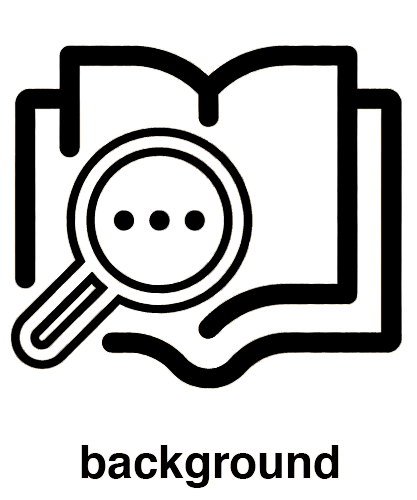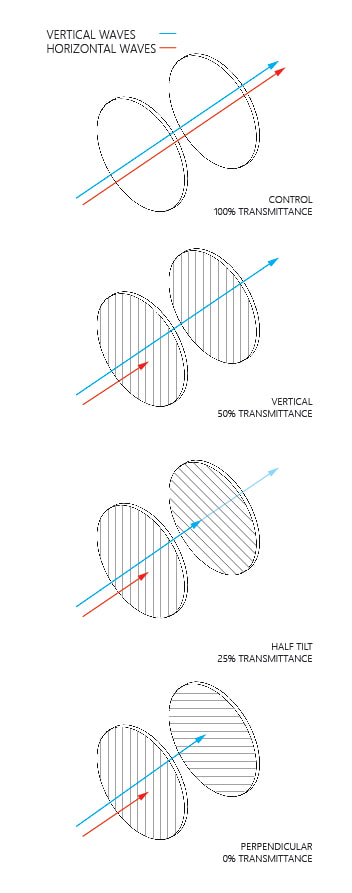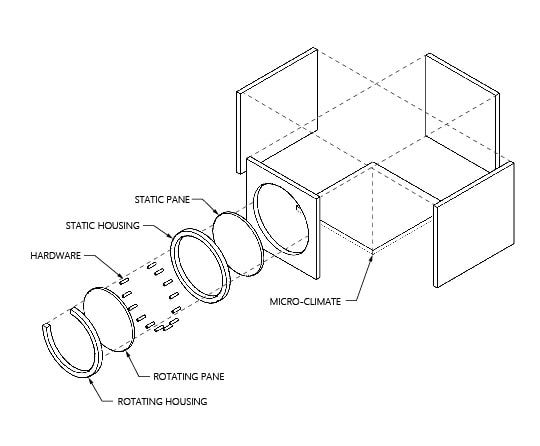Polar Reflection
1. Research Question
Can applying polarized film to a transparent medium reduce solar heat gain?
Can applying polarized film to a transparent medium reduce solar heat gain?
2. Problem Statement
As window to wall ratios continue to shrink, building performance plummets. It is difficult to reduce heat loss through through glazing, but solar heat gain can be addressed. Current solutions can be effective at mitigating heat gain, but either block the occupants view or are costly in their installation and upkeep. Polarization has not been extensively explored as a system for reducing heat gain, and I believe it has potential to do so.
As window to wall ratios continue to shrink, building performance plummets. It is difficult to reduce heat loss through through glazing, but solar heat gain can be addressed. Current solutions can be effective at mitigating heat gain, but either block the occupants view or are costly in their installation and upkeep. Polarization has not been extensively explored as a system for reducing heat gain, and I believe it has potential to do so.
3. Objectives
1. How well does polarization reduce heat gain?
2. How effective is polarization with invisible wave lengths?
3. What factors, like radiant heat from the light source are playing into the data?
1. How well does polarization reduce heat gain?
2. How effective is polarization with invisible wave lengths?
3. What factors, like radiant heat from the light source are playing into the data?
4. Hypothesis
When a single plane of polarized film is used it will reduce heat gain by 50%, When two planes are used, one fixed in the vertical position and the other free to rotate, it will reduce heat gain by (.555x)+50%. Where x = each degree of rotation of the second plane.
When a single plane of polarized film is used it will reduce heat gain by 50%, When two planes are used, one fixed in the vertical position and the other free to rotate, it will reduce heat gain by (.555x)+50%. Where x = each degree of rotation of the second plane.
|
Materials
Box (6) 8"x8"x1/2" pieces of plywood (4) 3"Ø pieces of plexiglass (4) 3"Ø sheets of polarized film Wood housing for plexi Misc. hardware |
Light Source (1) Adjustable light fixture (1) 150W Incandescent light bulb |
Equipment (1) Temperature sensor (1) Spectrometer |






